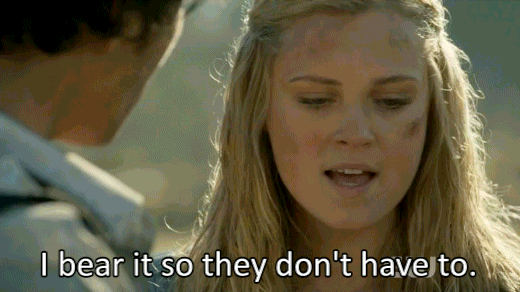
There’s this narrative about The 100. It goes like this: The 100 started out as so CW (frustratingly, still a diss, despite The CW’s proven awesomeness) before eventually finding its footing as a TV show near the end of Season 1 and really coming into its own in Season 2. A similar perspective forms the foundation for a great article published on io9 (a big proponent of The 100) today, but is prevalent in many corners of the online TV world. Here’s the thing: Season 2 has been an amazing season of television (one of the best on TV right now), but I would argue that The 100 knew what it was doing — and started doing it really well — from the start. Sure, the pilot has some discouraging, eye-rolling traits, but so do many TV pilots which are made to sell to a network first, often times inexplicably at the expense of their quality. And, you know what? Even given the problematic elements of that first episode, I still think it knew what it was doing. I still think it’s a better TV pilot than a lot of what’s out there. (For example, I was underwhelmed by The CW’s most recent pilot, iZombie — perhaps, an unpopular opinion.)
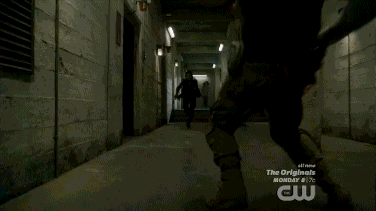
But, even if you don’t buy into the But The Pilot Was Good, Tho! argument, it’s hard to argue that The 100 didn’t immediately start demonstrating the complex ethical nature that sets this show apart. How could The Ark send 100 teens against down to Earth on a probable suicide mission without even asking? What responsibility, if any, does this group of kids owe the leadership/system/society that killed many of their parents, locked one of them up simply for existing, and sent them all down to the Earth as guinea pigs? These were questions The 100 was immediately, actively exploring. But the show really made me (and many other viewers) stand up and take notice as soon as Charlotte stabbed that knife into Wells’ neck. This went down in Episode 3 — Episode 3, people! From that point on, I knew this show was going to be different because I never knew what the hell was going to happen next. No one seemed safe, and that doubt and dread created a fertile environment for narrative.
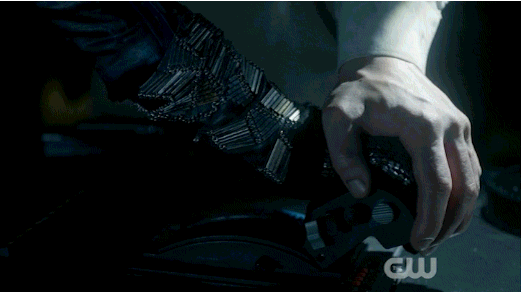
To be fair, Season 2 of The 100 has been even better than Season 1, but I would argue that this increase in quality can happen when a TV show has a good number of episodes under its belt, when we’ve gotten to know how these characters used to be so the show can change them and make us feel something about it. And that’s what I care about: emotional resonance. (There’s a reason this website has “feels” in its title, and it’s not an ironic one.) When it comes down to it, we all look for different things in our pop culture stories. I am very much in the target demographic for this show: a young, female, genre TV lover. Just because I adored the first season doesn’t mean everyone will. However, I take issue with this idea that the show suffered because it was too “CW” (again, a stigma we really need to retire altogether) or that many of the elements that it made it so critically successful in this second season were absent from Season 1. I adored Season 2 for the same reasons that I thoroughly enjoyed Season 1: The 100 created a complex world full of fully-realized, incredibly-flawed characters that made me think and feel. It allows young, female characters to lead, have narrative agency, and be imperfect in a way that is incredibly rare on television. As long as The 100 keeps doing this, I will watch.
If you’re interested in hearing more of my thoughts on The 100, check out my recaps over at The Televixen.
Have you enjoyed The 100 since the beginning of Season 1? Why or why not? Sound off in the comments below.


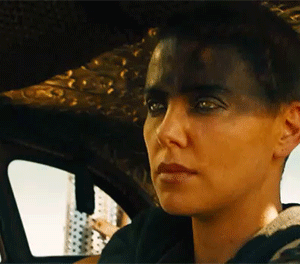
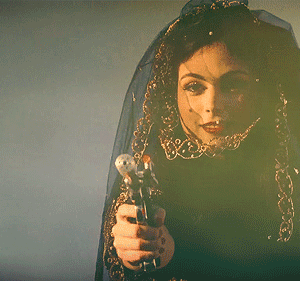
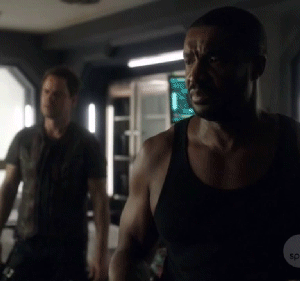
Leave a Reply